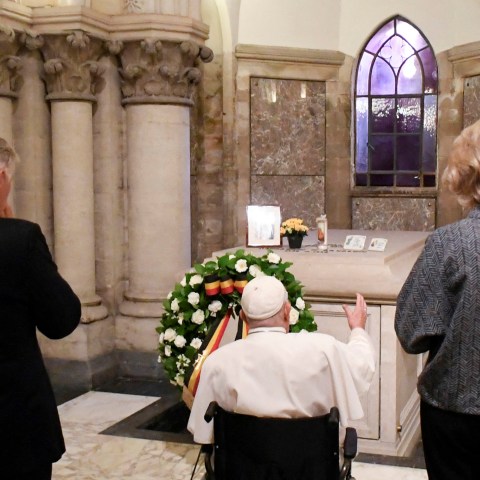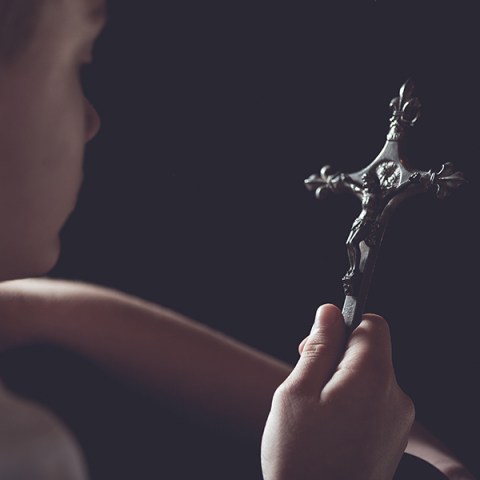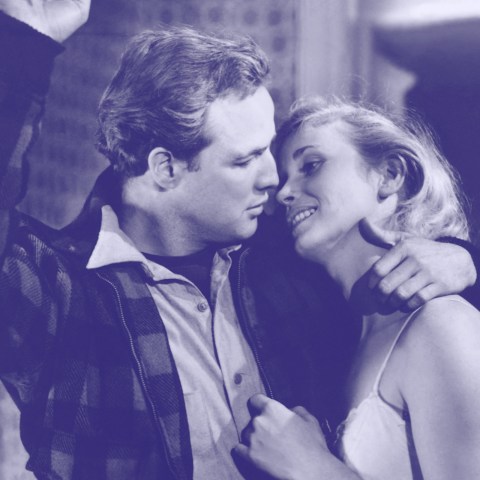Here are 5 ways to see those around us for who they truly are.When I’m at the gym, I watch a lot of TED talks and listen to a lot of podcasts about healthy relationships and chastity. Recently I watched a talk about the difference between love and lust, and the presenter described lust as an essential component of a romantic relationship. She gave examples of how to reignite a lustful energy in one’s relationship. In her attempt to help couples this speaker got something very wrong about love and lust.
Lust is completely inessential to — and even harmful to — a healthy and supportive romantic relationship. Lust looks at a person for his or her body, and what can be taken. Lust is defined by the Catechism of the Catholic Church as: “disordered desire for or inordinate enjoyment of sexual pleasure. Sexual pleasure is morally disordered when sought for itself, isolated from its procreative and unitive purposes” (2351).
Lust is easy. We lust after people, things, and ideas, everyday — sometimes without even realizing it.
Love, on the other hand, is difficult. Love is choosing to want the best for someone. It is sacrificial and challenges us to look outside of ourselves. Love is what makes a relationship more than a hook-up, it’s what makes intimacy truly intimate. Love is giving of oneself rather than looking to primarily receive. Without committed love, physical acts of love turn into acts of objectification. These relationships and the actions that take place within them become inauthentic and meaningless.
How can we prevent ourselves from falling into this habit, and better see those around us as dignified and cherished, as children of God? Here are five ways:
1Dear future spouse letters
Writing letters, especially when tempted to lust over someone or something, brings your attention directly back to the love you want to nurture for your future. Keeping all the letters in one journal, notebook, or even blog, allows you to look back on them when temptation is strong and also gives you the opportunity to give those letters to your future spouse.
2Actively avoid pornography
Pornography is poison to any relationship. While it’s a given that it shouldn’t be watched, it’s also important to not be complacent when faced with the “soft” porn that is rampant throughout our culture. Songs that almost always end with sex, the objectification of men and women in advertisements, and movies and shows that completely disregard the idea of waiting for marriage are so common that we don’t always notice the messages they’re sending. By being aware and avoiding these, you are preparing your mind and soul to be better for your future spouse.
3Emotional chastity
My first real relationship, with a high school boyfriend, was really a relationship built on lust. Dates were based on how quickly we could get back to his house to be alone to make out. While I did admire him, I put him on too high a pedestal and didn’t allow myself to see the inauthenticity and shallowness of our relationship. I emotionally lusted after him, planning our life together while he was planning our breakup. Communicating about where your relationship is and where it is going can help you both to be aware of where you are in the relationship, and where you both want to go.
4Little things that add up to big things
My parents began dating in their sophomore year of high school and are still madly in love to this day. They have fun together, they communicate, and they see in each other the best version of themselves. They still pay attention to the little things. When things are very busy, they take time for date night — something I’ve adopted into my life and relationship as well. They are each other’s best friend, and always strive to be better for the other. These small actions — making time for each other and trusting each other enough to always communicate clearly and honestly — promote a relationship in which the whole person is cherished.
5Be vigilant
Now that I’ve fallen in love with someone who’s my best friend, my confidant, and my biggest supporter, I see the importance of continually assessing the authenticity of a relationship and why you’re in it. It’s a good idea to ask yourself important questions, such as: “Am I doing this for pleasure or as an expression of my love?” and “Is this love or lust?,” and then not to hesitate sharing the answers with each other. Being open and honest about where you both are in your battle to choose love over lust can help shape the foundation of a loving, other-centered relationship.
It is in giving that we receive, and by giving our relationships to God and giving of our energy, time, and commitment to those relationships, we might receive the gift of a loving and successful relationship.

Read more:
How to balance vulnerability and honesty when you’re dating

Read more:
How to develop the courage you need for today’s dating scene








